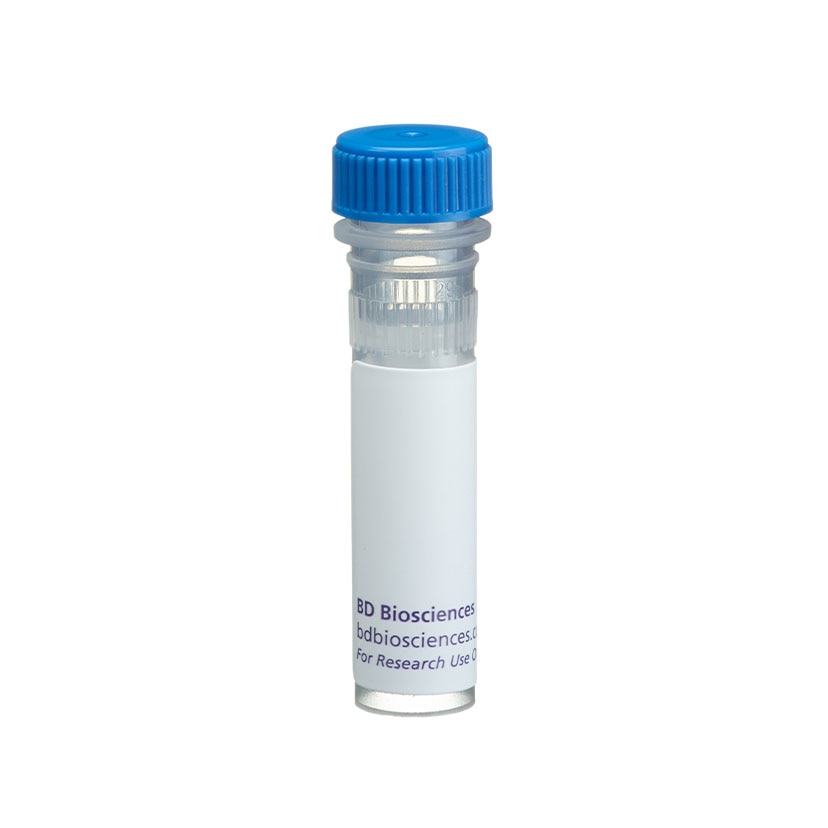-
Reagents
- Flow Cytometry Reagents
-
Western Blotting and Molecular Reagents
- Immunoassay Reagents
-
Single-Cell Multiomics Reagents
- BD® OMICS-Guard Sample Preservation Buffer
- BD® AbSeq Assay
- BD® Single-Cell Multiplexing Kit
- BD Rhapsody™ ATAC-Seq Assays
- BD Rhapsody™ Whole Transcriptome Analysis (WTA) Amplification Kit
- BD Rhapsody™ TCR/BCR Next Multiomic Assays
- BD Rhapsody™ Targeted mRNA Kits
- BD Rhapsody™ Accessory Kits
- BD® OMICS-One Protein Panels
- BD OMICS-One™ WTA Next Assay
-
Functional Assays
-
Microscopy and Imaging Reagents
-
Cell Preparation and Separation Reagents
Old Browser
This page has been recently translated and is available in French now.
Looks like you're visiting us from {countryName}.
Would you like to stay on the current location site or be switched to your location?
BD Transduction Laboratories™ Purified Mouse Anti-PTP1C/SHP1
Clone 52/PTP1C/SHP1 (RUO)





Western blot analysis of PTP1C on Jurkat cell lysate. Lane 1: 1:500, lane 2: 1:1000, lane 3: 1:2000 dilution of anti-PTP1C.

Immunofluorescent staining on HL60 cells.




Regulatory Status Legend
Any use of products other than the permitted use without the express written authorization of Becton, Dickinson and Company is strictly prohibited.
Preparation And Storage
Recommended Assay Procedures
Western blot: Please refer to http://www.bdbiosciences.com/pharmingen/protocols/Western_Blotting.shtml.
Product Notices
- Since applications vary, each investigator should titrate the reagent to obtain optimal results.
- Please refer to www.bdbiosciences.com/us/s/resources for technical protocols.
- Source of all serum proteins is from USDA inspected abattoirs located in the United States.
- Caution: Sodium azide yields highly toxic hydrazoic acid under acidic conditions. Dilute azide compounds in running water before discarding to avoid accumulation of potentially explosive deposits in plumbing.
PTP1C (SH-PTP1, SHP-1, or HCP) is a protein-tyrosine phosphatase (PTP) that is expressed in epithelial and hematopoietic cells. It contains two N-terminal SH2 domains and a C-terminal phosphatase domain. While its distribution is primarily cytosolic, exposure to various stimuli induces movement of PTP1C to other cellular locations to allow interaction with its substrates. This enzyme associates with the IL-3, IL-4, erythropoietin, and stem cell factor receptors and may regulate their signaling pathways by dephosphorylation of their receptors or their downstream effectors. Motheaten mice, which possess a nonfunctional PTP1C gene, display multiple hematopoietic abnormalities including increased proliferation and activation of myeloid cells. Studies involving these mice have clearly implicated PTP1C in negative regulation of CSF-1 (colony stimulating factor-1) mitogenic signaling and have demonstrated a role for PTP1C as an intermediate between Ras and the MAP kinase pathway.
Development References (5)
-
Duchene J, Schanstra JP, Pecher C. A novel protein-protein interaction between a G protein-coupled receptor and the phosphatase SHP-2 is involved in bradykinin-induced inhibition of cell proliferation. J Biol Chem. 2002; 277(43):40375-40383. (Clone-specific: Immunoprecipitation, Western blot). View Reference
-
Keilhack H, Muller M, Bohmer SA, et al. Negative regulation of Ros receptor tyrosine kinase signaling. An epithelial function of the SH2 domain protein tyrosine phosphatase SHP-1. J Cell Biol. 2001; 152(2):325-334. (Clone-specific: Immunohistochemistry, Western blot). View Reference
-
Kenner KA, Anyanwu E, Olefsky JM, Kusari J. Protein-tyrosine phosphatase 1B is a negative regulator of insulin- and insulin-like growth factor-I-stimulated signaling. J Biol Chem. 1996; 271(33):19810-19816. (Biology). View Reference
-
Liu F, Hill DE, Chernoff J. Direct binding of the proline-rich region of protein tyrosine phosphatase 1B to the Src homology 3 domain of p130(Cas). J Biol Chem. 1996; 271(49):31290-31295. (Biology). View Reference
-
Lund-Johansen F, Davis K, Bishop J, de Waal Malefyt R. Flow cytometric analysis of immunoprecipitates: high-throughput analysis of protein phosphorylation and protein-protein interactions. Cytometry. 2000; 39(4):250-259. (Clone-specific: Flow cytometry, Immunoprecipitation, Western blot). View Reference
Please refer to Support Documents for Quality Certificates
Global - Refer to manufacturer's instructions for use and related User Manuals and Technical data sheets before using this products as described
Comparisons, where applicable, are made against older BD Technology, manual methods or are general performance claims. Comparisons are not made against non-BD technologies, unless otherwise noted.
For Research Use Only. Not for use in diagnostic or therapeutic procedures.